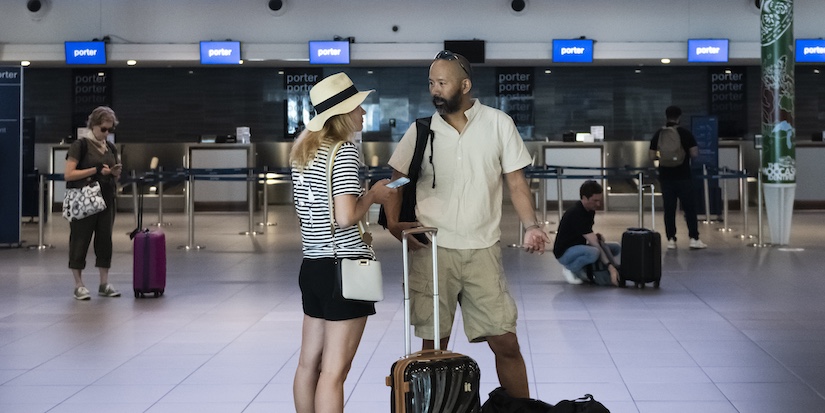Latest News
I can’t believe that’s a law: PEI edition

Published 11:21 PDT, Fri July 4, 2025
—
DISCLAIMER: The following article is for informational and entertainment purposes only, and does not reflect the opinions of the Richmond Sentinel. In the last edition of our series, we took a look at the quirky laws and bylaws found in the Province of Newfoundland, as part of our 13-part series. In this edition, we head to the setting of the novel Anne of Green Gables, also known as the Province of Prince Edward Island, to see what quirky laws and bylaws were or still are enforced today.
1. Everyone has heard the story of Frosty the Snowman, a jolly happy soul with a corncob pipe and a button nose and how he had to run during a hot summers day but promised to return someday. Well in Souris, Prince Edward Island, looks like there are some restrictions to Frosty, should he ever return. A bylaw states that on the corner lots of homes in the Town of Souris, snowmen are not permitted to exceed 30 inches in height. The reason for the bylaw is for visibility and road safety reasons, in hopes that drivers’ view of the intersection will not be obstructed. As of right now, the bylaw is still enforced, discouraging the creation of such tall snowmen. Looks like Frosty’s return in Souris will see him standing shorter than two and a half feet.
2. Given the long and narrow, winding roads in Prince Edward Island, in 1974, the province enacted a law that would alert a driver being taken over that the car behind them is attempting to pass them. According to Section 154 (1)(a) of the Highway Traffic Act “the driver of a vehicle that is overtaking another vehicle shall sound a clearly audible signal by horn to alert the driver of the other vehicle, if necessary.” Due to the limited visibility the practice aims to prevent unsafe passing maneuvers. As of right now the law is still enforced, but the practice is rarely enforced as many drivers are unaware that this is a requirement by the law.
3. In 1977, the soft drink industry had undergone a transformation, with the introduction of plastic bottles which costed less than glass, profits were about to skyrocket for those soft drink companies. That is, until the Province of Prince Edward Island enforced a province-wide ban on non-refillable soft drink bottles. Seven years later, the province would add to the list by adding soft drink cans to the list. The provincial ban came due to concerns of littering on roadsides and beaches and in support of local glass-bottle bottlers in hopes of preserving jobs as well. It wasn’t until 2008, when the province made the decision to lift the ban and introduce a deposit-return system that provided an incentive to recycle while meeting the demands of consumers for more diverse packaging.
4. In the year 2025, humans have become quite reliant on public transportation and automobiles. From bussing to the grocery store to pick up this week’s worth of ingredients to taking a greyhound or train across the country, automobiles have been a great help. That wasn’t always the case in Canada, in 1908 a ban on automobiles was enacted. Although there had only been seven automobiles on the island, they were not permitted to travel on the island roads due to the concerns of safety and frightening of horses and livestock. In 1913, amendments to the legislation were made allowing automobiles to travel on island roads for three days of the week. Eventually, in 1919, the ban on automobiles was lifted, this permitted the unrestricted use of automobiles, enabling islanders to efficiently travel, transport goods, and as a result of extended usage, improved roads.
5. It would be safe to assume that anyone who grew up in Canada has experienced either the thrill and adrenaline of ringing a doorbell and running away or the confusion of hearing the doorbell being run only to find no one waiting. This act has many names, from ding-dong ditch in the United States to, Knicky-Knack nine doors. Turns out not every person has experienced this as the Municipality of Charlottetown, enacted a bylaw in 1994 called the Noise & Nuisance Bylaw that prohibited “willfully wantonly ringing any doorbell or knocking at any door, building or fence so as to disturb or annoy any person in his dwelling, place of business, or meeting place” is a violation. Till this day the bylaw is still in effect and violators may face fines for what some see as a harmless prank.
6. Did you know that PEI has implemented set funeral-procession etiquette as a supplement of the Highway Traffic Act? The etiquette are as follows; Procession vehicles are to display purple flashing lights and keep headlights on, drivers in the procession must exercise caution at red lights and stop signs, and other drivers must reduce speed by half the post limit and not pass the procession from behind. These practices are not mandatory but willingly followed by locals out of courtesy and community values.
While some of these laws may be outdated and are amusing today, they reflect the unique moments in Prince Edward Island’s history. From preserving the charm of rural roads and protecting the local bottle industry to ensuring respectful community conduct, these quirky laws or bylaws offer an insight on the values and concerns of the past and the present.
If you think we missed any quirky laws in the province, feel free to email us at newsroom@richmondsentinel.ca or comment under the post on one of our social media accounts. In the next edition, we look at our last and final province and territory, known for its rich Acadian heritage, natural landscapes, and a world-famous hill that pulls your car up, to see what quirky laws and bylaws were or still are enforced.




























